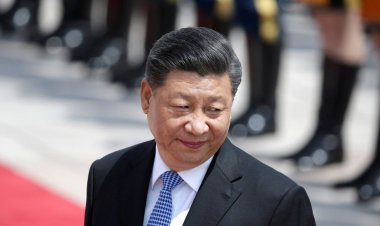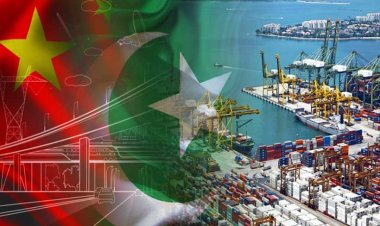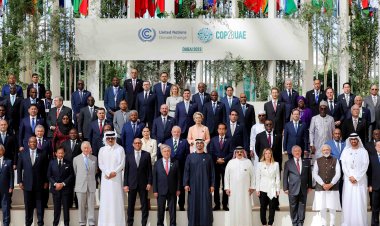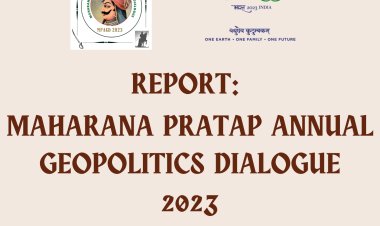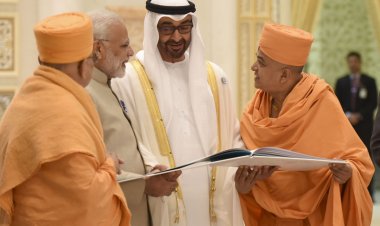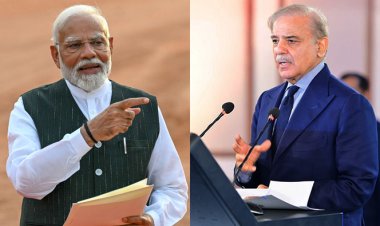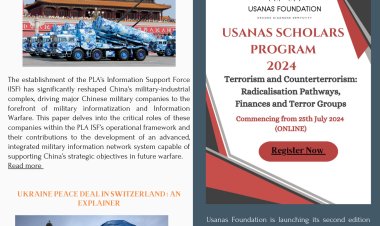Qin Gang: Fall of the President’s Man
The paper discusses the disappearance of the Foreign Minister of China, Qin Gang.
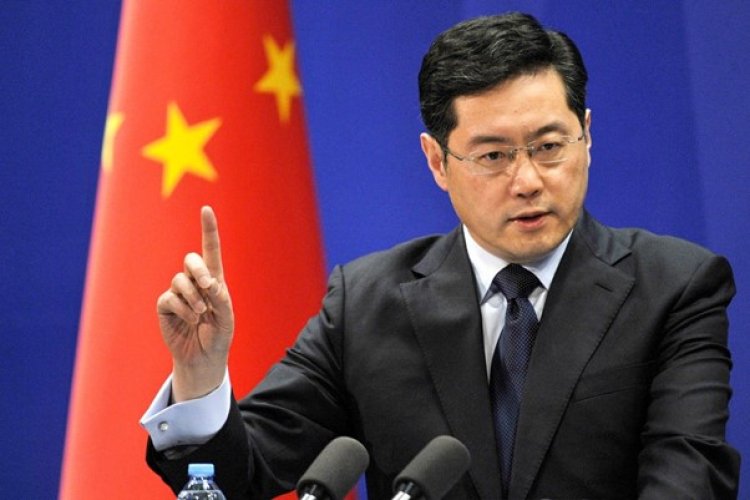
Explainer
By Shivani Pandey
It was on 30th December 2022 when Qin Gang, a 57-year-old seasoned diplomat, former Ambassador of China to the United States, and a close confidant of Chinese President Xi Jinping, was appointed as the Foreign Minister of China. He replaced Wang Yi who served in the position from 2013-2022. However, the disappearance of the Minister from 25th June 2023, cancelling key meetings including that with EU Foreign Policy Chief Josep Borrell, sparked speculations over the internal turmoil within the tight-lipped Chinese Communist Party. Affirming these speculations, on 25th July 2023, Qin Gang was replaced by his predecessor Wang Yi as the top diplomat of the country. Thus, the youngest Foreign Minister of China also became the shortest-serving Foreign Minister of China.
Who is “Warrior Gang”?
Born in 1966 in the city of Tianjin, Qin studied Bachelor of Laws with a major in international politics at the prestigious University of International Relations in Beijing and entered the Chinese Ministry of Foreign Affairs in 1992. Over the years, he held key diplomatic appointments around Europe and the United States. He served as the spokesman of the Foreign Ministry twice between 2006-14 and 2014-18. He has also been serving as State Councillor of China since March 2023.
Qin stood out as a “Wolf-warrior Diplomat” aggressively defending Chinese assertive foreign policy. Over the years, he worked closely with President Xi in organizing his visits overseas. As a sharp-tongued spokesman, he was soon nicknamed “Zhan Gang” or “Warrior Gang”. He was instrumental in the propagation of the Chinese Dream and ambitions abroad, acting in line with President Xi’s instructions in projecting the apparent decline of America and its allies. The meteoric rise of Qin and his ascendancy to the Ministry is often credited to his closeness to the President who appointed him in the office over his more experienced peers.
Disappearance and Removal
After the meeting with his counterparts from Russia, Vietnam, and Sri Lanka, Qin had not been seen in public since June 25, 2023. Key meetings such as with EU Foreign Policy Chief, US Treasury Secretary, and US Climate Envoy, were either canceled or missed by Minister Qin with ill-health being cited as the reason for sudden absence.
On 25th July 2023, in a session convened by the country’s top legislature, it announced the removal of Qin Gang as the Foreign Minister, having been replaced by his predecessor Wang Yi. While he stands removed as the Minister, there has been no announcement yet on his status as the State Councillor.
Speculations over reasons for Qin’s removal:
Following Qin’s ouster, during a daily briefing in Beijing, the Ministry of Foreign Affairs spokesperson Mao Ning declined to provide any information and reasons behind the sudden turn of events and responded that the matter is being subjected to “malicious hype”.
When Qin was absent at the diplomatic meeting in Indonesia between Foreign ministers of the Association of Southeast Asian Nations (ASEAN) and China, the Foreign Ministry cited ill-health and his “physical condition” as the reason. However, observers and experts have speculated both personal and political reasons behind the move. Social media conspiracies have only added fuel to the fire.
One of the reasons mused for the removal of Qin were rumors of his extramarital affair with a female television presenter, who notedly has also suddenly disappeared. Also, with Xi’s heavy crackdown on corruption within the party, high profile ministers such as Minister of Industry and Information Technology Xiao Yaqing have earlier disappeared, removed, and investigated.
Additionally, considering the rapid rise of Qin and his closeness to Xi, coupled with him being the youngest Foreign Minister of China, the likelihood of envy and prejudice among his party colleagues cannot be discounted. As such, the competitors within the CCP might have used this moral indiscretion to pressurize the deposition of the diplomat from office.
Dirty Laundry and Global Embarrassment?
Over the decades of Chinese history, the disappearance of public figures has been a rather frequent occurrence. From Qin Gang to Jack Ma, it has not been uncommon for well-known people to have disappeared after a falling out with authorities. While the recent shuffling has once again exposed the opaque and autocratic decision-making in the country, it is also a diplomatic embarrassment for the CCP and its leadership.
The controversy revolving around the diplomat’s personal life, his subsequent disappearance, removal, and the non-transparent nature of government functioning has attracted global attention and criticism. Well, one can never be too sure when it comes to Chinese politics. After removal from the office, Qin is now being erased from the website of the Ministry of Foreign Affairs. This signals the Ministry’s efforts to distance itself from the diplomat.
Minister Qin was one of the hand-picked close aides of the President, being chosen over the other relatively more experienced colleagues. If speculations of moral indiscretion are correct, it may lead to more voices and dissension within the Party over the hand-picking of the President’s personal favorites and close aides for key ministerial positions. This also comes after last year’s very public ejection of former President Hu Jintao from the main stage at the closing ceremony of the 20th National Congress of the Chinese Communist Party. Thus, while the Foreign Policy of China is not expected to undergo much change, these incidents are a public setback and discomfort for President Xi.
What next?
After the removal of “Wolf Diplomat” Qin Gang from office, his predecessor “Silver Fox” Wang Yi was reinstated as Foreign Minister, a position he earlier held for almost a decade. After the sudden ouster that reflects internal chaos, which the CCP has long strived to avoid, the diplomatic machinery will be adeptly engaged in changing the global optics and perception of China.
Also, the distinct style of functioning of Qin, who exercised a more assertive policy, and Wang, who is a traditional bureaucrat and a steadying actor, is likely to be reflected in China’s foreign engagements in the near future. It is expected that Wang will likely aid the stabilization of US-China relations following months of hostility.
Instead of choosing a new candidate, the decision to appoint Wang in place of Qin has been seen as a deliberate move, relying on his ability to handle the crisis. Once the speculations and public eye on the CCP and Qin Gang subsides, it is expected that Wang Yi will likely go back to his earlier role as the Director of the Foreign Affairs Commission Office and a new candidate as the Minister of Foreign Affairs will be appointed.
Disclaimer: This paper is the author's individual scholastic contribution and does not necessarily reflect the organization's viewpoint.




